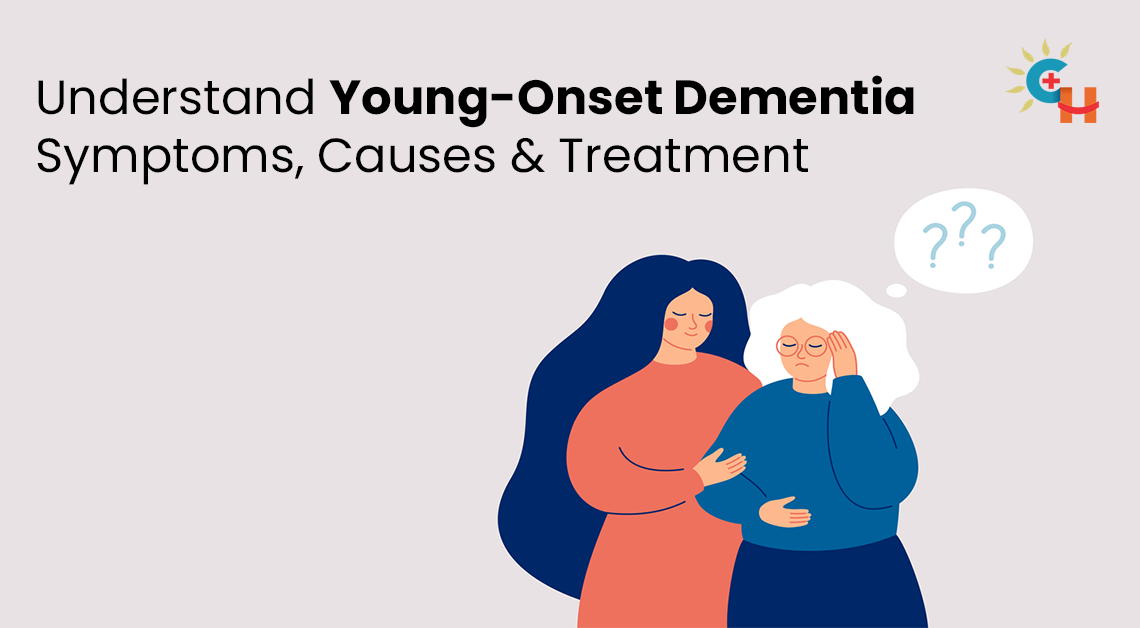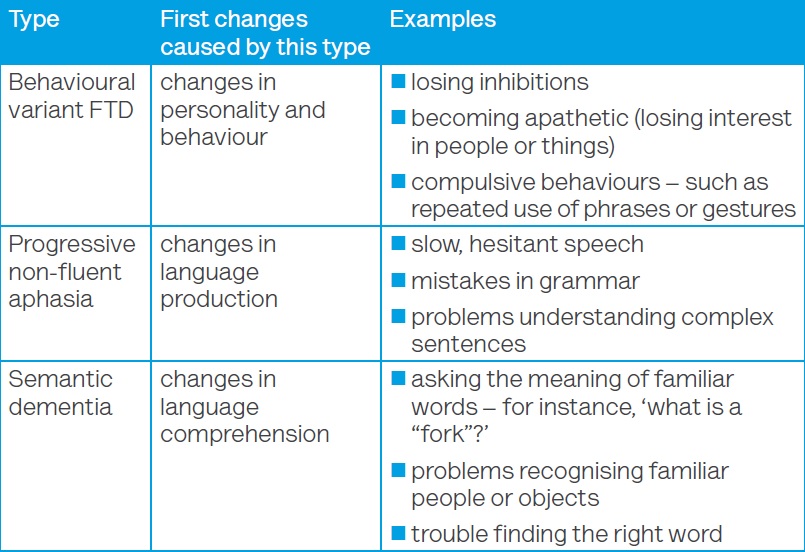Living Well After an Early Onset Dementia Diagnosis
Living Well After an Early Onset Dementia Diagnosis
Blog Article
Understanding the Impact of Dementia on Every Day Life and Caregiving
Dementia affects every day life in extensive means, influencing not just those diagnosed yet likewise their caretakers. As cognitive decrease proceeds, you could discover changes in interaction and routine that challenge both celebrations. Recognizing these shifts is important for maintaining dignity and engagement. However just how do you adapt your caregiving methods to support someone traversing this complicated trip? The solutions may surprise you as we discover the nuances of this experience.
The Phases of Dementia and Their Impacts on Every Day Life
As you navigate the journey of mental deterioration, comprehending its stages can noticeably impact just how you handle every day life. Mental deterioration generally advances via three main phases: early, center, and late. In the onset, you could notice occasional memory gaps or trouble finding the appropriate words. This can lead to disappointment, yet recognizing these signs early assists you adjust your routine and seek support.
During the center stage, you'll experience extra noticeable cognitive decrease. Daily tasks might come to be tough, and maintaining your self-reliance might need adjustments. Making use of reminders and streamlining your atmosphere can assist.
In the late phase, people typically require significant assistance with everyday activities. Preparation for care ends up being vital, concentrating on comfort and top quality of life. By recognizing these phases, you're better outfitted to react proactively, guaranteeing you or your loved one can browse the challenges with dignity and grace.

Modifications in Communication and Social Communication
Exactly how do adjustments in communication influence your day-to-day interactions as dementia proceeds? As dementia advancements, you may see that basic discussions become tough. Words might escape you, or you might have a hard time to locate the ideal phrases. This can lead to disappointment for both you and your enjoyed ones. Nonverbal cues, like motions or facial expressions, end up being progressively crucial.
You may find it simpler to attach via these methods rather of relying exclusively on spoken language. Listening abilities can also transform; you may find it more challenging to comply with discussions or keep in mind what was just said (Vascular Dementia). This can cause misconceptions or feelings of isolation
Urging perseverance and developing a helpful setting can assist. Involving in activities that promote connection, like music or art, can boost social communications. Remember, maintaining relationships is still possible; it's nearly adjusting to brand-new means of interacting.
Influence On Daily Routines and Activities
While navigating day-to-day routines, you'll likely see that jobs you when completed easily become a lot more challenging as dementia advances. Straightforward activities like food preparation, clothing, or perhaps showering might call for more time and effort. You could locate on your own neglecting steps in familiar regimens or battling to remember where you placed items. This can lead to irritation not just for you, but additionally for those around you.
Preparation your day can feel overwhelming, making it tougher to stick to a schedule. You may require suggestions for visits or to take medications. Adapting your atmosphere can help; for circumstances, classifying products or utilizing lists can simplify tasks. Involving in recurring, structured tasks can additionally supply comfort and a sense of accomplishment. Bear in mind, it's okay to ask for aid. Surrounding on your own with helpful good friends or household can make managing these changes a bit easier.
Emotional and Behavioral Challenges
Steering via day-to-day routines can produce not simply functional obstacles, however also emotional and behavior ones. You might observe adjustments in mood, such as raised stress and anxiety or disappointment, which can stem from complication or difficulty in finishing tasks. As you navigate these minutes, it is vital to recognize that your enjoyed one might express their feelings via behaviors like anxiety or withdrawal.
These emotional actions can be unforeseeable and may develop without warning, leaving you both sensation overwhelmed. You could discover that familiar settings or routines can aid minimize anxiousness, yet keeping perseverance comes to be significant. It is necessary to confirm their feelings, even if you don't completely understand them.
The Function of Caregivers in Sustaining People With Dementia
As a caregiver, you play a crucial role in giving psychological support for individuals with dementia. Establishing everyday care regimens can develop a feeling of stability and comfort, assisting to relieve their anxiousness. By understanding their needs and using reliable strategies, you can considerably improve their quality of life.
Emotional Support Techniques
When caring for somebody with you could try this out mental deterioration, understanding the emotional landscape is necessary for providing efficient support. Straightforward motions, like holding their hand or maintaining eye call, can create a feeling of safety and security. Inevitably, do not fail to remember to take care of your own emotional demands; looking for support for yourself can improve your capability to care for them.
Daily Treatment Routines
Establishing day-to-day care routines is essential for giving stability and convenience to people with dementia, as these regimens can help reduce complication and stress and anxiety. You can start by laying out a consistent timetable for dishes, activities, and rest. This predictability assists your loved one feel extra safe and engaged.
Include familiar jobs, like folding laundry or watering plants, which can evoke positive memories and foster a feeling of success. Usage aesthetic signs, such as schedules or checklists, to lead them with the day.
Be versatile, though; adapt routines as needed based upon their mood or power degrees. Frontotemporal Dementia. Remember, your persistence and understanding are important in navigating their changing demands, this hyperlink guaranteeing they really feel sustained and valued throughout their day-to-day live
Creating a Safe and Comfortable Living Environment
Creating a secure and comfy living atmosphere is crucial for people with mental deterioration. You'll intend to make home security alterations that decrease risks and assure experience to give a feeling of comfort. By focusing on these elements, you can help create a room that sustains both safety and security and well-being.
Home Safety Modifications
As you navigate the obstacles of dementia, making home security adjustments can substantially enhance comfort and protection. Begin by getting rid of tripping threats like rugs and clutter, ensuring sidewalks are clear. Mount grab bars in restrooms and non-slip floor coverings in the shower to stop drops. Think about utilizing brighter lighting and evening lights to boost presence, specifically throughout nighttime. Label crucial areas, such as the shower room and kitchen, with clear indications to help with positioning. Protect any kind of sharp objects or hazardous materials out of reach. Furthermore, evaluate your home's locks and alarms to confirm they're easy to use and give satisfaction. These modifications not just advertise safety however also urge self-reliance, permitting your liked one to feel more comfortable in their setting.
Convenience and Knowledge
After guaranteeing a risk-free setting with necessary adjustments, fostering convenience and knowledge is essential for people with mental deterioration. Keep a consistent regular to help them really feel grounded and decrease stress and anxiety. Engaging in familiar activities, such as paying attention to songs or gardening, can improve their feeling of belonging, making their living atmosphere a real refuge.
Approaches for Efficient Caregiving and Support
While navigating the difficulties of mental deterioration care can feel frustrating, applying efficient strategies can substantially enhance both the more information caregiver's and the person's daily experience. Begin by establishing a routine; predictability aids decrease anxiety for both you and your liked one. Use clear, basic interaction-- brief sentences and direct inquiries can prevent complication.

Do not fail to remember to deal with yourself; routine breaks and get in touch with support system. Sharing experiences with others in comparable scenarios can provide important insights and emotional relief.
Lastly, stay person and flexible. Mental deterioration can bring uncertain adjustments, so adapting your approach is vital. By utilizing these techniques, you can promote a much more favorable environment that profits both you and your enjoyed one.
Frequently Asked Concerns

What Are the Various Sorts Of Dementia?
You'll discover several sorts of mental deterioration, consisting of Alzheimer's, vascular dementia, Lewy body dementia, and frontotemporal mental deterioration. Each kind influences memory and cognitive function differently, so understanding the distinctions is necessary for correct medical diagnosis and care.
Exactly How Can I Assist A Person With Early-Stage Mental Deterioration?
You can aid someone with early-stage mental deterioration by holding your horses, providing support, and motivating them to participate in activities they appreciate. Keeping routines regular and preserving open communication can likewise make a considerable distinction in their daily life.
Are There Financial Resources Available for Mental Deterioration Treatment?
Yes, there are economic sources readily available for dementia treatment. You can check out federal government support programs, nonprofit companies, and insurance policy alternatives. It's also a good idea to get in touch with local firms for particular sources tailored to your situation.
What Legal Factors To Consider Should Caregivers Know?
As a caregiver, you must consider power of attorney, health care proxies, and guardianship legislations. It's vital to recognize the lawful rights and duties you hold, guaranteeing your enjoyed one gets proper care and protection.
Just How Can I Cope With Caretaker Stress?
You can deal with caretaker anxiety by focusing on self-care, looking for assistance from groups or close friends, establishing sensible assumptions, taking breaks, and exercising leisure techniques. Keep in mind, your well-being matters equally as much as the person you're taking care of.
Understanding the Effect of Mental Deterioration on Daily Life and Caregiving.
As you browse the journey of mental deterioration, understanding its stages can considerably influence just how you handle everyday life.While navigating everyday routines, you'll likely notice that jobs you when finished effortlessly become extra difficult as mental deterioration advances.Developing daily care regimens is important for giving stability and convenience to people with mental deterioration, as these routines can help reduce confusion and stress and anxiety.While steering the difficulties of mental deterioration treatment can really feel overwhelming, executing reliable approaches can significantly enhance both the caregiver's and the patient's day-to-day experience.
Report this page